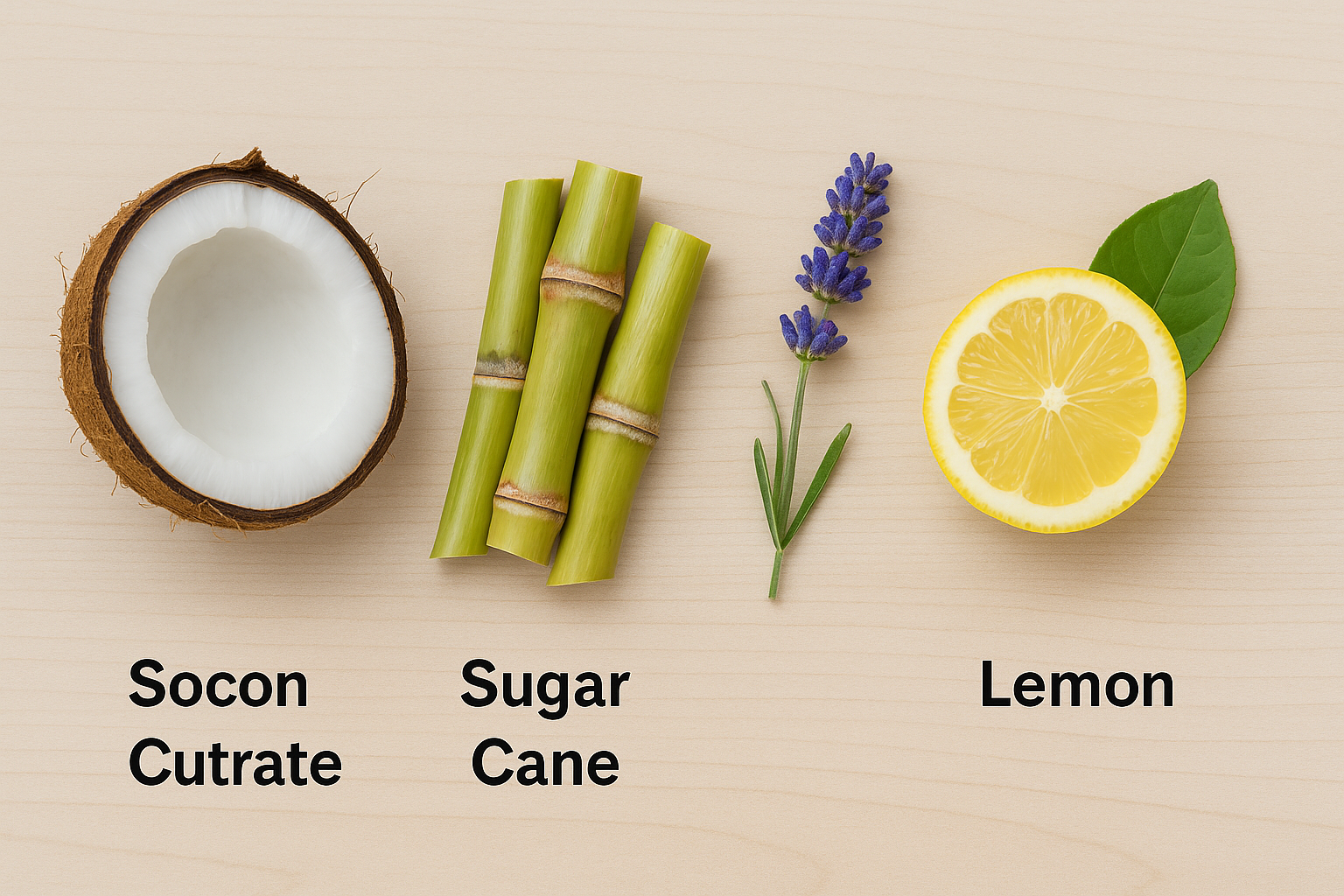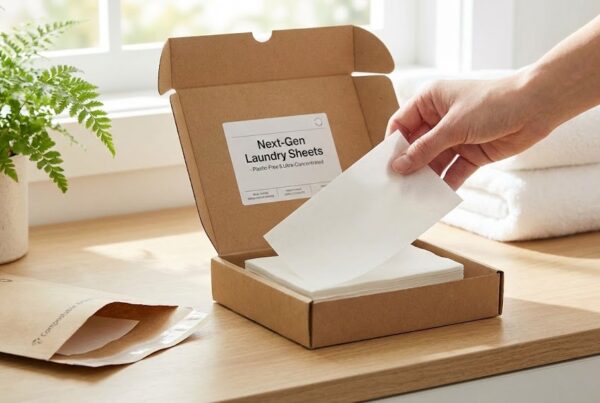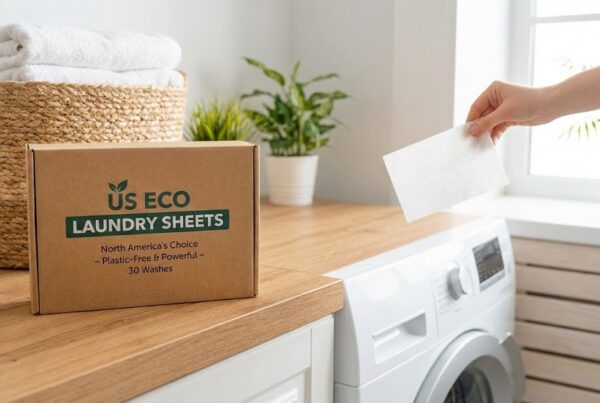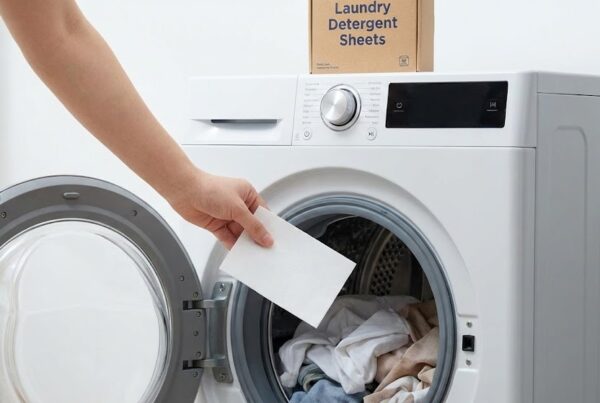Top Ingredients in Eco-Friendly Laundry Sheets Explained
The growing demand for eco-friendly cleaning products is transforming the laundry industry. More consumers are ditching heavy plastic jugs and synthetic chemicals in favor of laundry detergent sheets — thin, dissolvable strips that clean clothes effectively while reducing waste.
But what makes these sheets truly “eco-friendly”? The answer lies in the ingredients.
In this blog, we’ll explain the top ingredients used in eco-friendly laundry sheets, how they work, and what to look for when choosing or developing a sustainable formula.
🌱 What Makes an Ingredient Eco-Friendly?
An ingredient is considered eco-friendly if it meets several criteria:
-
✅ Biodegradable: breaks down safely in the environment
-
✅ Non-toxic: safe for humans, animals, and aquatic life
-
✅ Plant-derived or naturally sourced
-
✅ Low-impact during production and disposal
-
✅ Free from harsh chemicals, dyes, or artificial preservatives
Let’s break down the most common ingredients used in high-quality eco laundry sheets.
🧼 1. Surfactants (Cleaning Agents)
Surfactants are the core cleaning ingredients. They help lift dirt and oil from fabric and keep it suspended in water so it can be rinsed away.
🌿 Common Eco Surfactants:
-
Sodium Coco Sulfate (SCS) – Derived from coconut oil, it’s gentler than SLS but still effective.
-
Decyl Glucoside – A non-ionic surfactant made from sugar and coconut; mild and safe for sensitive skin.
-
Lauryl Glucoside – Similar to decyl glucoside, great for foaming and gentle cleansing.
🟢 Eco Benefit: These surfactants are plant-based, non-irritating, and readily biodegradable.
🌿 2. Natural Enzymes
Enzymes break down specific stains such as proteins, starches, or fats, making your laundry cleaner with less effort — even in cold water.
💧 Common Enzymes:
-
Protease – Breaks down protein-based stains (e.g. blood, sweat, food)
-
Amylase – Targets starch stains (e.g. pasta, rice)
-
Lipase – Removes grease and oil stains
-
Cellulase – Revives fabric color and texture
🟢 Eco Benefit: Enzymes are biodegradable proteins that improve cleaning performance naturally, reducing the need for harsh chemicals.
🍃 3. Water Softening Agents
These help soften hard water, improving the effectiveness of surfactants and preventing residue buildup.
🌿 Popular Options:
-
Sodium Citrate – A salt derived from citric acid, softens water and prevents limescale.
-
Sodium Carbonate (Washing Soda) – A natural mineral that boosts pH and cleaning power.
🟢 Eco Benefit: Safe, non-toxic, and readily biodegradable water softeners reduce the amount of detergent needed per wash.
🌸 4. Fragrance (Optional)
Fragrance is optional, but often important for consumer satisfaction.
🧴 Eco-Friendly Fragrance Types:
-
Essential Oils – Natural extracts from plants like lavender, eucalyptus, or lemon.
-
IFRA-Certified Synthetic Fragrances – Safer and more stable options for scent customization, especially for sensitive markets.
🟡 Caution: Some natural oils can cause skin irritation; choose low-dose, skin-safe blends.
🟢 Eco Benefit: Fragrance-free or essential-oil based options offer low-toxicity alternatives with fewer allergens.
🧊 5. Binders and Film Formers
These hold the sheet together and ensure it dissolves properly in water.
Common Natural Binders:
-
Polyvinyl Alcohol (PVA) – Water-soluble and widely used in eco detergents. Biodegradable in sewage systems.
-
Methylcellulose – A plant-derived polymer from cellulose (wood pulp), safe and dissolvable.
-
Starch (e.g., corn or tapioca) – Used in natural formulas to form the sheet structure.
🟢 Eco Benefit: These ingredients replace plastic or microbead carriers used in traditional formats.
🌾 6. pH Adjusters
Keeping the detergent at the right pH ensures fabric safety and enzyme performance.
-
Citric Acid – Derived from citrus fruits, balances pH and helps dissolve minerals.
-
Sodium Bicarbonate (Baking Soda) – Neutralizes odors and helps balance alkalinity.
🟢 Eco Benefit: These natural pH adjusters are gentle, non-toxic, and multipurpose.
❌ 7. What to Avoid in Eco Laundry Sheets
Not all detergent sheets are created equal. Watch out for these non-eco ingredients:
-
❌ Optical Brighteners – Synthetic chemicals that make clothes appear cleaner but don’t actually clean.
-
❌ Phosphates – Harm aquatic life and pollute waterways.
-
❌ Artificial dyes and colors – Add no cleaning value and can cause skin irritation.
-
❌ SLS (Sodium Lauryl Sulfate) – A strong surfactant that can be harsh on sensitive skin.
Always check the ingredient list and choose formulas backed by certifications.
🧪 Certifications That Validate Eco Ingredients
When choosing or developing an eco-friendly formula, look for certifications such as:
-
MSDS (Material Safety Data Sheet) – Confirms chemical safety
-
SGS Testing – Validates effectiveness and compliance
-
REACH/ROHS – EU environmental safety compliance
-
Vegan / Cruelty-Free – Confirms ethical sourcing
-
Biodegradable / Compostable – Especially for packaging and binder
🧼 Summary Table: Eco Ingredients Overview
| Ingredient Type | Common Examples | Eco-Friendly Benefits |
|---|---|---|
| Surfactants | SCS, Decyl Glucoside | Plant-based, biodegradable |
| Enzymes | Protease, Amylase, Lipase | Natural stain removal, cold water wash |
| Water Softeners | Sodium Citrate, Washing Soda | Reduces detergent waste and buildup |
| Fragrance | Essential Oils, IFRA-certified | Optional, customizable, skin-safe |
| Binders | PVA, Starch, Methylcellulose | Dissolvable, replaces plastic carriers |
| pH Adjusters | Citric Acid, Baking Soda | Fabric-safe, natural performance booster |
As a factory specializing in private label laundry sheets, we offer:
✅ Custom formula development with natural and certified ingredients
✅ Ingredient transparency and INCI listing support
✅ Scent options with essential oils or fragrance-free formulas
✅ Eco-compliant packaging and labels
✅ Low MOQs for startups
✅ Certification support: MSDS, SGS, REACH, Vegan, etc.
Whether you want to launch a sensitive-skin product, baby-safe version, or premium scented sheet, we’ll help you create a clean, green, and market-ready solution.
✅ Conclusion
Understanding the top ingredients in eco-friendly laundry sheets helps you make better choices — as a brand, retailer, or consumer. The right formula is gentle on skin, powerful on stains, and kind to the planet.
By choosing plant-based, biodegradable, and toxin-free ingredients, you’re not just making laundry easier — you’re making a difference.
📩 Contact us today to develop your custom eco-laundry formula and receive free samples.





